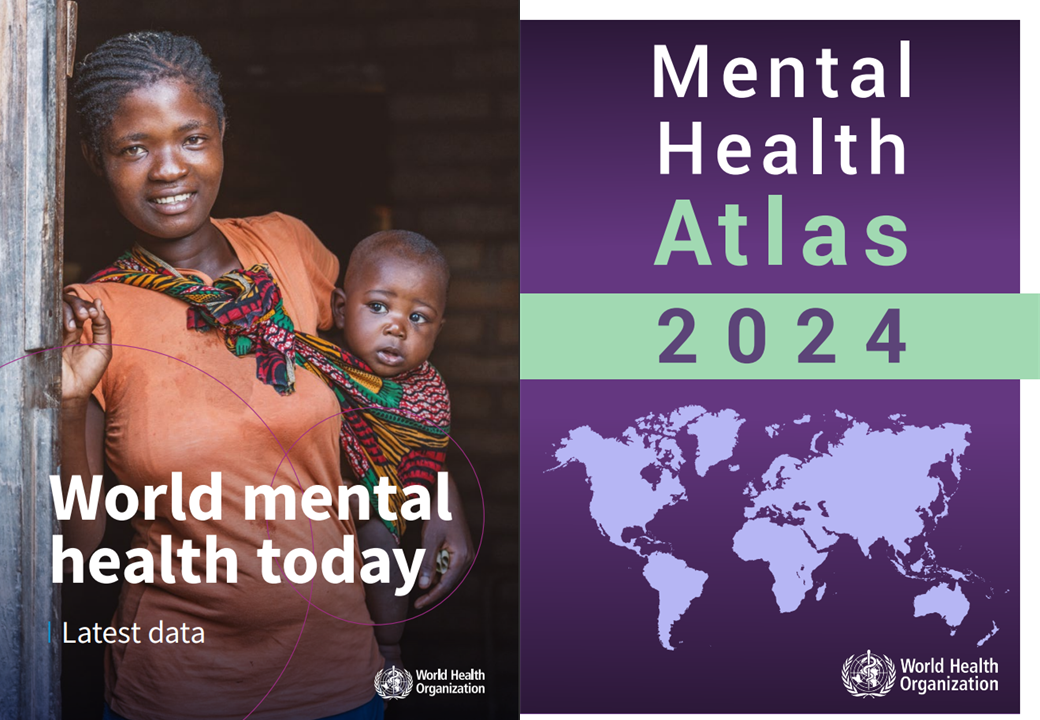The World Health Organization released the World Mental Health Today (Latest Data) and the Mental Health Atlas on 2 September 2025. World Mental Health Today is derived from the Mental Health Atlas 2024. It offers the latest data (2021) on the prevalence, burden, and cost of mental health conditions globally. It also highlights the persistent gaps in service coverage, financing and workforce capacity for mental health. The document provides critical evidence not only for the upcoming United Nations High-Level Meeting on Noncommunicable Diseases and Mental Health, but also for policymakers, implementers, and advocates.
Highlights:
- Mental health needs are high, but responses are insufficient and inadequate.
- More than 1 billion people worldwide live with a mental disorder. Nearly 1 in 7 people globally live with a mental disorder.
- USD 1 trillion is lost in annual productivity due to depression and anxiety.
- The economic burden of mental health conditions is estimated to be between 0.5 to 1.0% of a country’s gross domestic product.
- Depressive and anxiety disorders have increased among 15 to 29-year-olds.
- Depressive and anxiety disorders are more common among females than males throughout the life course.
- Around 7% of the world’s young children (aged 5 to 9 years) and 14% of the world’s adolescents (aged 10 to 19 years) lived with a mental disorder.
- People with severe mental health conditions have shorter life expectancies than the general population.
- Only 9% of people with depression receive adequate treatment.
- 71% of people with psychosis do not receive mental health services.
- On average, only 1.4% or less of health budgets in low- and middle-income countries go to the prevention and treatment of mental health conditions.
- In low-income countries, there is barely one mental health worker per 100,000 population, almost non-existent.
- Community-based mental health care is consistently underfunded.
FORUT welcomes the updated data on the state of mental health from the WHO. FORUT can confirm that the reform from institutional care towards community-based person-centred care is too slow. FORUT, through its Mental Health Programme, is working towards equipping civil society with tools to promote and prevent the development of mental health disorders. FORUT believes that this is one of the most viable and effective ways to move forward to ensure universal mental health coverage.
Recommended citation: World Health Organization. (2025). World mental health today: latest data. Geneva: World Health Organization.
Recommended citation: World Health Organization. (2025). Mental Health Atlas 2024. Geneva: World Health Organization.



